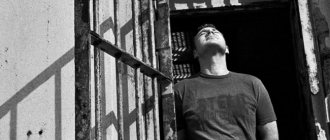Almost every day in our country and in the world there are citizens who do not consider it obligatory to comply with the laws and commit various illegal acts. According to the Criminal Code, every crime must be punished, which can be completely different. The judge takes into account not only the severity of the crime, but also the personality of the defendant and his state of health. Quite often it happens when a citizen of our country commits a crime while in an inadequate state, completely unaware of what he is doing. In such cases, types of compulsory medical measures are taken. We will analyze in detail in what cases this is done, what these measures are and what are the features of such an impact.
Medical measures are...
Typically, types of compulsory measures of a medical nature include sanctions that are both legal and medical. Legal, because they are determined by law, and medical - have a medical nature, since one cannot do without the recommendations and consultations of psychiatrists.
They are provided for by law and consist of providing compulsory medical care and protection to citizens who have committed unlawful acts but have various mental disorders. Such pathologies can be dangerous not only for the person himself, but also for others, and therefore the Criminal Code of the Russian Federation implies types of compulsory medical measures.
The code spells out in detail the basis on which such measures are applied, the procedure for their appointment and their varieties. Next we will consider all these questions.
What are the medical measures?
The above-mentioned article of the Criminal Code of the Russian Federation establishes, as already mentioned, 4 types of measures that can be assigned to the defendant, as well as their concept and content. These, in accordance with the first part of the norm, include:
- Treatment, including observation, which is forcibly carried out at home by a psychiatrist.
- Treatment involuntarily provided in an inpatient setting of a general medical institution providing care to patients with mental illness.
- Treatment involuntarily provided in an inpatient setting of a specialized medical institution providing assistance to patients with mental illness.
- Treatment involuntarily provided in an inpatient setting of a specialized medical facility that provides care for patients with mental illness and uses intensive supervision.
Second part of Art. 99 of the Criminal Code of the Russian Federation determines the use of medical measures in relation to those convicts who are recognized by a psychiatric examination as sane at the time of committing a criminal offense. Moreover, a judge can impose these measures on a criminal who suffers from pedophilia, who has committed a crime against the sexual integrity of a victim under 14 years of age.
The grounds for the application of coercive measures are established by Article 97 of the Criminal Code of the Russian Federation, and the following norm of this legal act determines the purposes of their application. The main goals are:
- healing of convicted insane people;
- suppression of their possible illegal behavior.
Signs of medical measures
The peculiarity of such measures lies in their content, which has its own distinctive features:
- All types of compulsory medical measures under criminal law must be implemented in conditions that will be absolutely safe both for others and for the patient himself.
- Such measures are applied on the basis of a court decision forcibly, without taking into account the opinion of the defendant himself or his relatives.
- The types of compulsory medical measures, the duration and cessation of their use are determined taking into account the severity of the mental state, as well as the danger to society and the prognosis for the future.
- Only the court can prescribe medical measures and decide on their continuation or change. All psychological and psychiatric reports attached to the case materials are considered by the judge in conjunction with other evidence.
- An important principle in the use of medical measures is to impose as little coercion on the patient as possible.
Based on this, it can be argued that the types of compulsory measures of a medical nature and their application are a kind of complex medico-legal institution. It is built around the enforcement of measures, the grounds for which are provided for in criminal law.
When coercive measures can be applied to minors
The current legislation does not have separate rules that regulate the application of such measures to minors.
The application of compulsory medical measures to minors is determined in the same way as their application to adults - based on the mental state of the person and the potential danger that he poses to himself and to others.
The grounds for applying compulsory medical measures to minors are no different from the grounds already described above. At the same time , minors must reach the age at which criminal liability for crimes occurs - this is 14-16 years, depending on the crime.
Is compensation due if someone was kept in a pre-trial detention center for several years, but the person turned out to be innocent?
Read
What categories of persons are planned to be released from punishment due to the amnesty in 2022
More details
On what grounds are measures prescribed?
There is article 97 in the Criminal Code of the Russian Federation. The types of compulsory medical measures and the grounds for their use are determined precisely according to it. This article establishes that such punishment may be imposed by the court in relation to the following persons:
- First of all, this article covers persons who have committed an unlawful act while insane. They do not realize the full danger of their actions and deeds, so they do not face criminal liability. According to the law, it is believed that the application of punishment in relation to such citizens would be unfair, because the person is completely unaware of his guilt.
- The second category includes citizens with mental disorders that arose after the commission of an unlawful act. The court releases such persons from punishment or it is canceled if the offender is already in prison.
- Those who have committed crimes already have mental disorders. But they can be minor, but limiting the understanding of your actions. Such persons are prescribed compulsory treatment by a psychiatrist, but criminal punishment is not abolished.
Whatever category people belong to, they have similar characteristics:
- There is a mental disorder.
- A criminal act has been committed.
- The court recognized the need for their psychiatric treatment.
Based on the above, we can conclude that the subjects of such measures are 4 categories of persons:
- 1st – insane citizens who committed a crime while already in a state of mental disorder.
- The 2nd category includes sane subjects whose mental disorder was discovered after committing an unlawful act.
- The 3rd category are persons who have mental disabilities, but are sane.
- Category 4 includes persons who have committed criminal acts while drunk or under the influence of drugs and are in need of compulsory treatment. The legislative characteristics of such persons include a legal criterion (the ability to act consciously when committing a crime) and a medical criterion (there is alcoholism or drug addiction).
Even the presence of all these signs does not mean compulsory treatment is mandatory. It is prescribed in cases where mental disorders can lead to harm not only to oneself, but also to those around oneself.
Treatment in a general hospital
Persons who have committed criminal offenses and are declared insane may be prescribed compulsory medical measures by a judicial authority, carried out in an inpatient setting. The legislator established the concept and content of these measures in Article 101 of the Criminal Code of the Russian Federation.
The second paragraph of this norm of the criminal law provides that persons who have committed a criminal act in a state of insanity must be assigned compulsory medical measures, consisting of inpatient treatment in a general medical institution. However, such persons should not belong to the category of persons who are allowed only outpatient treatment. On the contrary, the nature of their illness should require such treatment, which can only be carried out in a psychiatric hospital. It is there that such convicts will be provided with appropriate care, supervision and treatment, as required by legislation regulating mental health care.
The goals of general hospitals are to treat only those individuals whose condition does not require mandatory constant medical supervision, including intensive care.
The purpose of medical measures
We will consider further how many types of compulsory medical measures there are, but now we need to find out what purposes their use is pursued:
- Treatment of a person who has committed a crime and has mental disorders.
- Various types of compulsory medical measures are also used for qualitative changes in the psyche for the better, which are manifested in the disappearance of symptoms of the disease.
- Prevent the citizen from repeatedly committing new illegal actions, because such measures lead to the fact that the person becomes completely harmless both to others and to himself.
The types and procedure for applying compulsory medical measures are prescribed in Chapter 15 of the Criminal Code. Their peculiarity is the absence of criminal punishment, which means there will be no criminal record or other consequences. But they can only be applied by court decision and to those who have committed a crime.
Medical measures: common with criminal law
Whatever types of compulsory medical measures we consider, they all relate to forms of criminal punishment. This can be explained by the fact that these and other legal measures are similar in some ways:
- They are used against criminals.
- Such measures, like other types of punishment, are coercive in nature.
- Associated with various deprivations and restrictions.
- They are a consequence of violation of the Criminal Code.
But it must be clarified that no matter what types of compulsory medical measures and their features, criminal liability is not implemented.
Determining the type of coercive measures
The choice of one or another measure under consideration remains entirely with the judiciary. However, courts, as a rule, when making a judicial act, are guided by the opinions of experts in this field. It should be noted that the Criminal Code of the Russian Federation does not specify how and in what cases the considered measures are prescribed, their application is carried out, and the texts of the listed articles are very vague, giving only their abstract concept and content.
In other words, the judge's decision is influenced by psychiatric experts. They are the ones who can determine what specific type of treatment, under what conditions, is required for a particular convict who has been declared insane or suffering from a mental illness, but is in a sane state at the time of the commission of the crime. Based on the recommendations of these doctors, the court usually makes its verdict. However, the judicial authority bears full responsibility for the appointment and application of these measures.
Thus, the considered types of compulsory medical measures, their concept and goals differ only in the degree of illness of the insane convict. Based on this, it is determined which type is required for its treatment and which one should be used. In addition to the Criminal Code of the Russian Federation, which establishes these measures, their content, application and purposes are regulated by other regulations in the field of healthcare and mental health care.
Types of medical measures
Let us consider in more detail the measures that can be taken by a court decision. There are different types of compulsory medical measures; their characteristics differ primarily in the regime that is recommended to be followed and the nature of monitoring the patient. There are several types:
- Treatment by a psychiatrist is outpatient. This type of measure may be prescribed if the person's mental state is such that the person does not need to be admitted to a hospital to receive special treatment and care, because his danger to others is minimal.
- Another type of compulsory medical measure is staying in a psychiatric hospital. This measure is taken when it is determined that the nature of the disorder is such that it requires special conditions and therapy in a hospital, which can be of three types. The type of medical institution is selected by the court, and is guided by the principle of the necessity of the prescribed measure.
- Therapy in a general medical institution is prescribed for persons with mental disorders, but who do not require intensive supervision. These usually include patients who have a generally favorable therapeutic prognosis, but there is a likelihood of reoffending. They may be transferred to such treatment over time from a specialized hospital.
- Compulsory therapy in a special medical institution is prescribed to citizens who require constant supervision. In such hospitals, only patients who pose a danger to society are kept, so they are provided with additional nurses or security.
- The last type of compulsory medical measure is inpatient detention with intensive observation. Persons placed in such institutions are dangerous to themselves and society, and therefore require constant monitoring. Typically, this category includes patients who are predisposed to committing repeated serious crimes, grossly violating the regime, including attacks on medical personnel.
The law clarifies that minors who are under 16 years of age are not sent to specialized clinics with constant supervision.
Municipal entity Mordveskoye, Venevsky district
On compulsory medical measures.
Compulsory measures of a medical nature are measures of state coercion that are applied by court decision against a person who has committed socially dangerous acts prohibited by criminal law, suffering from mental disorders associated with a danger to himself or others or the possibility of causing them other harm.
Such measures are associated with the restriction of the constitutional rights of citizens to freedom and personal integrity, and are for them measures of a criminal law nature. Therefore, only the court has the right to decide on the application of compulsory medical measures to these persons, freeing them from criminal liability or punishment.
The norms of Chapter 15 of the Criminal Code of the Russian Federation determine the grounds, goals, types of compulsory measures of a medical nature, the procedure for their implementation, and termination of application. The purpose of applying these measures, in contrast to the purposes of punishment, is to cure persons who have committed a socially dangerous act in a state of insanity, or who, after its commission, have developed a mental disorder that makes it impossible to impose or execute a punishment, or persons who have committed a crime and suffer from mental disorders, not excluding sanity or improvement of their mental state, as well as preventing them from committing new acts (Article 98 of the Criminal Code of the Russian Federation).
Types of compulsory measures of a medical nature are determined by medical indications, and the court, when prescribing them, is obliged to be guided by the conclusion of a mental examination. Appropriate measures are prescribed by the court either independently or in parallel with punishment. Article 99 of the Criminal Code of the Russian Federation defines the following types of compulsory measures of a medical nature: a) outpatient compulsory observation and treatment by a psychiatrist is used if a person, due to his mental state, does not need to be placed in a psychiatric hospital; b) compulsory treatment in a general psychiatric hospital may be prescribed if the nature of the person’s mental disorder requires such conditions of treatment, care, maintenance and observation that can only be carried out in a psychiatric hospital, and if the person’s mental state requires inpatient treatment and supervision, but does not require intensive supervision; c) compulsory treatment in a specialized psychiatric hospital is prescribed to a person whose mental state requires constant monitoring; d) compulsory treatment in a specialized psychiatric hospital with intensive supervision may be prescribed to a person whose mental state poses a particular danger to himself or other persons and requires constant and intensive supervision.
The court may extend, change or terminate the application of compulsory medical measures based on the conclusion of a commission of psychiatrists, upon the proposal of the administration of the institution providing compulsory treatment. A person who has been prescribed a compulsory measure of a medical nature is subject to examination by a commission of psychiatrists at least once every six months to decide whether there are grounds for making a submission to the court to terminate the application or to change such a measure.
If there are no grounds for terminating the application or changing a compulsory medical measure, the administration of the institution providing compulsory treatment shall submit a conclusion to the court to extend compulsory treatment. The first extension of compulsory treatment can be made after six months from the date of commencement of treatment; thereafter, extension of compulsory treatment is carried out annually.
The change or termination of the application of a compulsory measure of a medical nature is carried out by the court in the event of such a change in the mental state of a person in which there is no need to apply a previously prescribed measure or there is a need to prescribe another compulsory measure of a medical nature. If the application of compulsory treatment in a psychiatric hospital is terminated, the court may transfer the necessary materials in relation to the person undergoing compulsory treatment to the health authorities to resolve the issue of his treatment or referral to a psychoneurological social security institution in the manner prescribed by the legislation of the Russian Federation on health care.
The use of compulsory medical measures does not entail criminal legal consequences in the form of a criminal record.
Senior Assistant District Prosecutor V.A. Drogalina
Time limits for application of measures
When compulsory medical measures are prescribed in court, their duration is not immediately established, since it is impossible to determine how long it will take for the patient’s health to improve. Every six months, a person who is under compulsory treatment is examined by a commission of psychiatrists in order to submit a court order to terminate the measures or change their nature.
The commission meets on the initiative of the attending physician, who constantly monitors the patient’s health condition. It doesn’t matter at all when the last examination took place.
As a result of the examination, the commission can make the following conclusion:
- The person does not need further compulsory treatment, since he has almost completely recovered from the disease.
- The patient’s mental state has changed for the better, so there is a need to change the compulsory measure.
- There are no changes in the patient's condition, so it is advisable to extend compulsory treatment.
Procedure for extension and termination of compulsory measures
We have already examined the concept and types of compulsory medical measures, but they can be either terminated or changed only at the discretion of the court, which will examine the presentation of the doctor of the medical institution in which compulsory treatment is carried out.
If after 6 months the patient’s condition does not improve, then the administration of the medical institution sends a conclusion on the extension of compulsory treatment to the courts. The first time this can be done only after six months after the start of therapy, and then annually.
The court has the right to change the type of medical treatment or terminate it if the patient’s mental state has changed for the better so much that the prescribed measure is no longer required or there is a need to change it.
The court can terminate compulsory treatment only if, according to the conclusion of a commission of psychiatrists, the person’s condition has improved so much that it is no longer necessary. If the patient’s condition, on the contrary, worsens, and the symptoms of a mental disorder do not become less pronounced, then one measure can be replaced with another, more stringent one.
It should be noted that for the court, the conclusion provided by psychiatrists is not binding; all data presented are subject to careful verification at the court hearing. As a result, the court may not agree with the doctors’ arguments and make a decision contrary to medical recommendations.
It often happens that when compulsory treatment is terminated, the patient may be registered in a psychiatric office or left in the same hospital on a general basis.
If the convicted person has lost his mind after the decision on punishment has been made, then the time spent in a psychiatric clinic is included in the sentence.
Treatment and observation at home (outpatient)
The concept and content of the first type of measures under consideration, defined in paragraph “a” of part one of this article of the Criminal Code of the Russian Federation, provides that it can be assigned to a convicted person by a judicial authority in the event that the offender does not suffer from a mental disorder too seriously, and this disease does not require immediate treatment. placement in an inpatient psychiatric facility. It should be noted that the purpose of this measure is determined not only by the mental state, but also by the category of persons to which the convicted person belongs and to whom, accordingly, medical measures may be prescribed.
For example, if a criminal is suffering from a mental disorder, which, in turn, does not exclude sanity, then such a citizen can be prescribed compulsory treatment only on an outpatient basis.
If the judge applied compulsory medical measures to the convicted person, the content of which consists of outpatient treatment (observation), then the execution of this judicial act is entrusted by law to all kinds of psychiatric organizations, which, for example, include psychoneurological dispensaries or the corresponding departments of psychiatric, city or regional hospitals .
How coercive measures are combined with the execution of punishment
Quite often there are situations when a person commits a crime while in a state of sanity, but has some mental deviations. In this case, the court may, in addition to criminal punishment in the form of a real sentence, prescribe compulsory treatment with a psychiatrist. Such therapy can also be carried out at the place of serving the sentence. If other types of punishment are applied to the convicted person, then psychiatrist assistance should be provided in medical institutions on an outpatient basis.
If, while serving a sentence, the mental state of a convicted person deteriorates so much that he becomes dangerous to himself and others, then there is a need for compulsory psychiatric treatment in a certain type of hospital. The basis, goals and content of the measure do not entail exemption from punishment; the time spent under treatment in a specialized medical institution is counted towards the total term.
If, after compulsory medical treatment, the patient’s condition improves and there is no need for further application of such measures, and the term of serving the sentence has not yet ended, then the convicted person will have to return to prison.
It should be clarified that if a convicted person is prescribed psychiatric treatment, and an amnesty is granted under the article under which he was convicted, then this is not a basis for terminating therapy.
Assignment and implementation of compulsory medical measures
The persons listed in the law against whom compulsory medical measures may be applied can be divided into two groups:
- The first group consists of insane persons who already had mental disorders or appeared after a crime they committed. Since they are not aware of what they have done, they cannot be held criminally liable on a general basis.
- The second group is people who claim that they were in a state of passion, or who have a suspicion of a mental disorder that is not documented. A medical examination is carried out to determine whether a mental disorder actually exists. In this case, for this group of persons, preliminary investigation and trial are carried out in accordance with the general procedure. Compulsory measures of a medical nature for this group of people are applied when sentencing and are carried out in accordance with the norms of the Criminal Executive Code (CEC) of the Russian Federation.
The medical examination procedure is initiated by a court decision. It can be forced, that is, the consent of the accused is not required. If there is evidence, the court orders a forensic psychiatric examination, based on the results of which it makes a decision on whether or not to apply compulsory medical measures to the accused.
The period of stay in hospital treatment is counted towards the term of serving the sentence, according to Art. 103 of the Criminal Code of the Russian Federation.
According to Part 2 of Art. 102 of the Criminal Code of the Russian Federation, persons who are prescribed compulsory medical measures must be examined every six months by a psychiatric commission, which decides on the further extension or termination of such measures.
If the need for further treatment has ceased, and the term of serving the sentence has not expired, then a second medical examination is carried out. If the person is recognized as cured, the criminal case is reopened. If the court makes a decision on punishment in the form of imprisonment, then the person spends the remaining term in a colony or other correctional institution.
If the patient’s condition has improved, but a complete cure is not observed, he can be transferred to a more gentle regimen, including outpatient treatment. If the condition worsens, on the contrary, more intensive treatment is prescribed.
13 patient rights under the law that everyone should know
Read
Does a doctor have the right to provide assistance to a victim during his non-working hours?
Look
Let's sum it up
If a person commits a crime, then, according to our legislation, he must be punished for it. The presence of mental disorders is not a reason to leave illegal acts unpunished. We examined the types of application of compulsory medical measures; they, by a court decision, can be applied to persons who are in an insane state at the time of the commission of an unlawful act.
In each specific case, the type of medical influence is selected based on the severity of the unlawful violation, as well as the mental state of the person who committed it.
Treatment in a specialized hospital
The third and fourth paragraphs of Article 101 of the Criminal Code of the Russian Federation define and regulate the imposition of compulsory measures on convicts, which are associated with placement in specialized psychiatric institutions and specialized types with intensive supervision.
A specialized medical institution provides treatment for patients with mental illness who have committed a crime and require constant supervision. This type of insane person is characterized by more complicated mental illnesses, in contrast to the previous two discussed above.
The concept and goals of the last type of coercive measures are associated with a person who poses a special danger not only to himself, but also to others. A convicted person who has committed a criminal act in a state of insanity and is recognized as such by a commission of experts or a specific expert is subject to treatment in a specialized psychiatric organization with the establishment of intensive treatment and observation, if his condition is so severe that the use of all previous measures will be ineffective for him.





